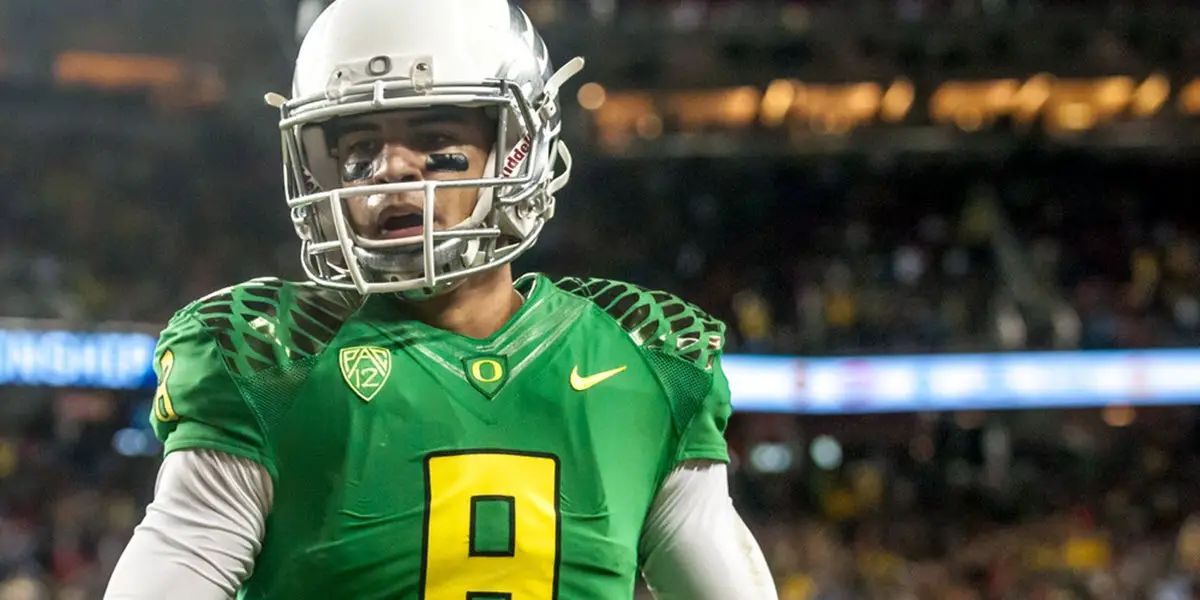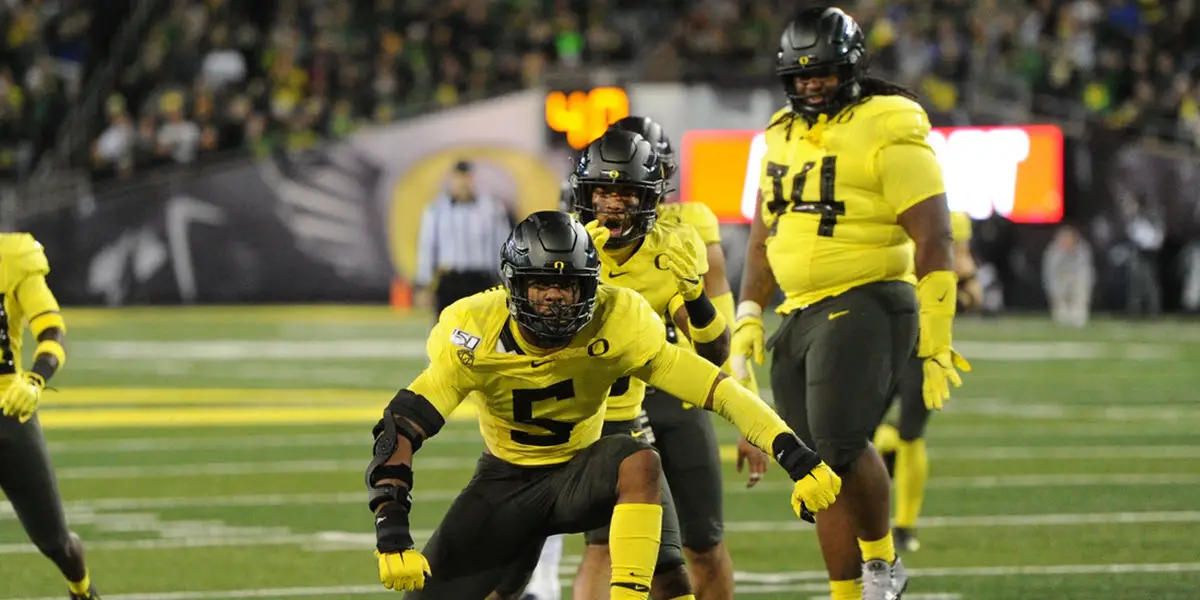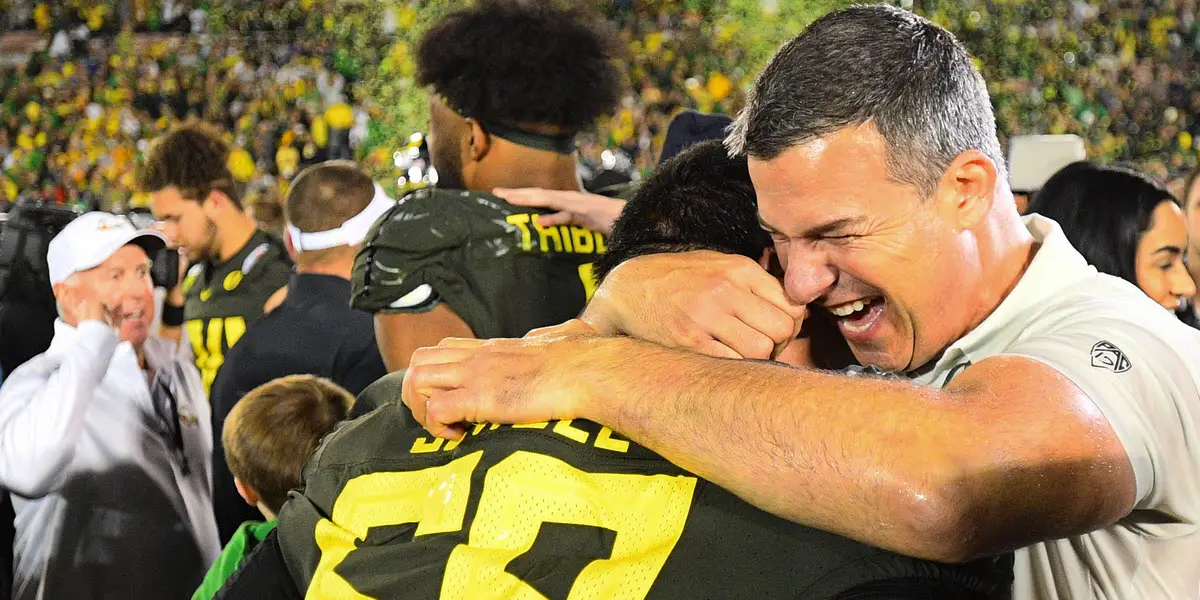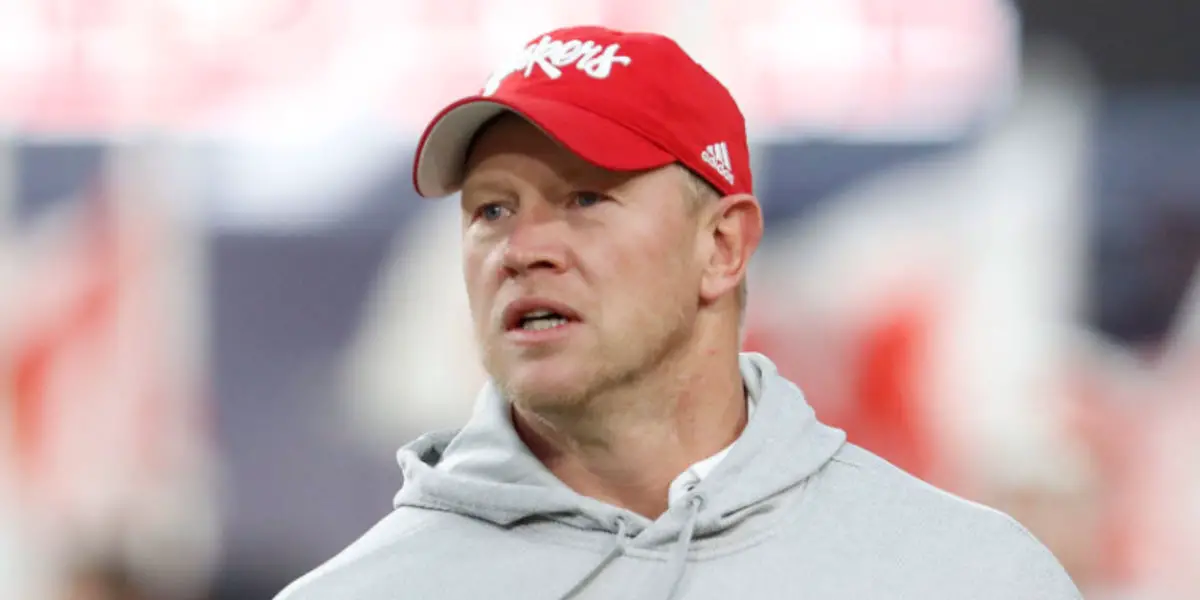Oregon is hot on the recruiting trail right now. Just last week, Oregon landed 2022 recruit Andre Dollar over Scott Frost and Nebraska. This has, yet again, led people to dig up Frost’s 2016 interview with USA Today, during his first year with UCF, where he notoriously stated:
“It’s hard in those places [Oregon] because we’re just not in close proximity, Oregon wasn’t and isn’t in close proximity to the fertile recruiting ground. At the end of the day, recruits have to decide to leave Southern California, or Georgia, or Florida, or Texas, where there some other pretty good schools and go all the way to Eugene.”
And Frost was absolutely right.
The Challenges of Recruiting to Oregon
It is hard to recruit to Oregon. The State of Oregon doesn’t produce a great amount of Division I-ready athletes. The two major universities, Oregon and Oregon State, are effectively a two-hour drive from the main population hub of Portland.

Remember: Marcus Mariota was under-recruited and an incredible find for Oregon.
Eugene has its charms, but anyone who has been in Eugene during the summer knows it is a completely different place than it is during the school year. Eugene doesn’t have the flash compared to much larger cities. Eugene, and Corvallis for that matter, are the definition of college towns: quiet during the summer, with the universities as the main social hubs for students.
The University of Washington, USC and UCLA, on the other hand, have traditionally had a much stronger recruiting draw than Oregon. A major reason why is their respective home cities. These major metropolitan areas have plenty of things to do that are not connected to the university.
Students don’t go to the University of Oregon for Eugene. They go for the university and the culture surrounding the university.

Chip Kelly and Scott Frost saw Oregon reach new heights.
On top of all of that, Oregon’s status as a football powerhouse is only about fifteen years old (if we are being generous). Mike Bellotti, Chip Kelly and even Mark Helfrich played significant roles in Oregon’s ascension to a football power.
Belotti oversaw the rise of the Oregon program, picking up where Rich Brooks left off, and he helped build Oregon into a respectable program that consistently fielded good teams. Kelly gave Oregon its first shot at a National Championship and its first Rose Bowl win since 1917. Then, Helfrich brought Oregon back to the National Championship Game and oversaw the development of Marcus Mariota, Oregon’s first and only Heisman winner.
Oregon today was built on the shoulders of all these coaches who came before, who succeeded with good, but not great, recruiting. Yes, Oregon would bring in a five-star recruit every now and then, but the notion of bringing in a five-star recruit yearly, let alone two in one recruiting cycle, was an unthinkable prospect.
Most five-star recruits tend to gravitate toward the blue-blood programs that can give them the most publicity and the best shot at winning a National Championship, the Heisman and other major awards. These programs tend to be nestled right in the middle of prime recruiting country.

Kayvon Thibodeaux is one of the best recruits ever to sign with Oregon.
Recruiting to Oregon was, and still is, difficult. So what changed?
Mario Cristobal came to Oregon.
Cristobal’s Unprecedented Success
Cristobal has done wonders with recruiting at Oregon, overseeing some of the best classes in Oregon history. And this year’s class might be the best yet, currently ranked No. 3 on Rivals. With more four- and five-star recruits committed than three-stars, it is tempting to think that recruiting to Oregon has become easier.
Cristobal is one of the best recruiters in the country and he does that through sheer hard work. In interviews, Cristobal describes how he is up at four in the morning and is fueled by Cuban coffee. It may seem excessive, but if Oregon is going to be a competitive recruiting power nationwide, Cristobal and company are going to have to get up early. If it is 4 a.m. on the West Coast, then it is 7 a.m. on the East Coast, and making connections with prospective recruits is a time-consuming job.
The most important aspect of recruiting isn’t salesmanship: it’s building relationships. Almost every recruit that signs with Oregon says they do so because the program feels like a family. This is almost a cliche, but in order for this to happen, relationships have to be built with trust and respect.

Mario Cristobal and Penei Sewell celebrate after a win.
When 5-star recruit Noah Sewell signed with Oregon, his explanation for his decision (in an interview with Andrew Nemec) was, “He’s [Cristobal] like a second father figure to me, because he takes care of my brother, Penei [Sewell]. And just seeing their relationship is just something I want with a coach.”
Creating a family feel isn’t only about building relationships with potential recruits, but maintaining current relationships. It is about building a culture of trust and honesty throughout the entire program. And there hasn’t been a major scandal around the Oregon football program since Cristobal took over. That is only achievable by building a strong culture.
There is a reason why there are undercurrents of resentment toward Oregon from other Pac-12 coaches. Cristobal continues to make Oregon one of the hottest destinations for top recruits, pulling in top talent from all over the country. Is Oregon easy to recruit to? Or does Cristobal simply outwork everyone and make it look easy?
David Marsh
Portland, Oregon
Top Photo from Twitter
 Andrew Mueller, the FishDuck.com Volunteer Editor for this article, works in higher education in Chicago, Illinois.
Andrew Mueller, the FishDuck.com Volunteer Editor for this article, works in higher education in Chicago, Illinois.

David Marsh is a high school social studies teacher in Portland, Oregon. As a teacher he is known for telling puns to his students who sometimes laugh out of sympathy, and being both eccentric about history and the Ducks.
David graduated from the University of Oregon in 2012 with Majors in: Medieval Studies, Religious Studies, and Geography. David began following Ducks Football after being in a car accident in 2012; finding football something new and exciting to learn about during this difficult time in his life. Now, he cannot see life without Oregon football.


